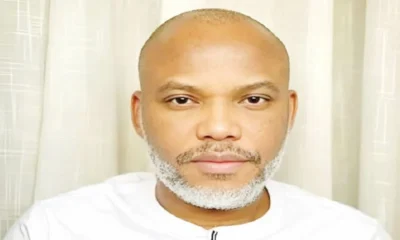Education
There is a report that Prof. Soyinka just repeated his stance about Achebe not being “the father of Africa literature.”
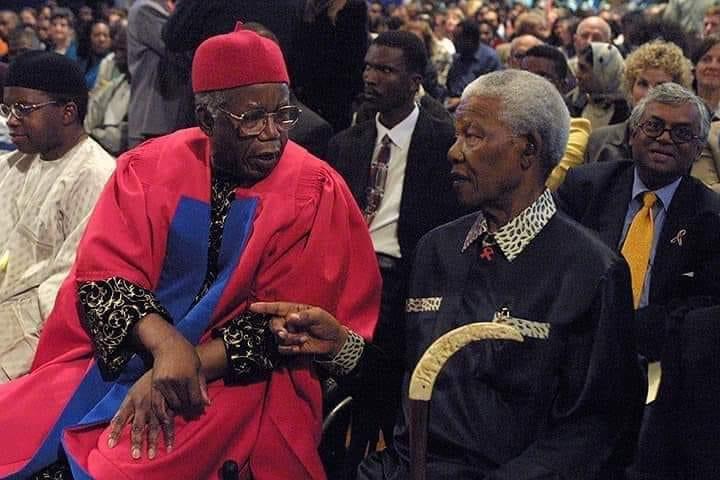
Chinua Achebe, the father of African literature?
“For many people all around the world, Chinua Achebe was their first African writer”
-Kwame Anthony Appiah
There is a report that Prof. Soyinka just repeated his stance about Achebe not being “the father of Africa literature.”
Well, we all could remember that just few weeks after Achebe’s demise, Soyinka had this to say; “Chinua himself repudiated such a tag—he did study literature after all, bagged a degree in the subject…Those who seriously believe or promote this must be asked: have you the sheerest acquaintance with the literatures of other African nations, in both indigenous and adopted colonial languages? What must the francophone, lusophone, Zulu, Xhosa, Ewe literary scholars and consumers think of those who persist in such a historic absurdity?”
He maybe right there. That’s his opinion. Just like everyone else has their own.
Of course, I have my own opinion on this issue but will mostly be sighting the opinions of great minds and institutions on the place of Achebe in African literature.
I think it was Noble Laureate Nadine Gordimer, the South African author that first called Achebe “the father of African literature when in 2007 he won the Man Booker International Price.
Writing on this issue, Kwame Appiah would say; “It would be impossible to say how “Things Fall Apart” influenced African writting. It would be like asking how Shakespeare influenced English writers or how Pushkin influenced Russians.”
Ainehi Edoro, a Nigerian from Akure and a professor of Global Black Literature at University of Wisconsin-Madison, writing in the Brittle Paper, an online literary magazine for readers of African Literature, had this to say on the topic; “The first mistake that Soyinka makes.. is taking the idea of “the father” or “the inventor” way too literally.
Achebe is the father of African literature only in a metaphorical sense.
No one is saying that Achebe was physically present when African literature came into being—like he was some kind of god who stood before the expanse of Africa’s literary nothingness and said “let there be African literature, and then there was African literature.” She continued; “Before Achebe, if you were black and you were African, the world most likely did not see your work as literary.
They would evaluate your work as folklore, myth, or things that should interest an anthropologist, but not literature. This affected the way African writing was circulated globally.
Instead of African fiction to be reviewed by the New York Times or shelved alongside Franz Kafka and Virginia Woolf, it was published by religious presses and reviewed in anthropological journals.
Things began to change in a big way after the global success of Things Fall Apart. It took a novel like Things Fall Apart for the global literary market, readership, and literary institution to see African writers the same way they saw Virginia Woolf or James Joyce or William Shakespeare—people writing things called literature and not myth, or folklore or historical documents or anthropological texts.”
Simon Gokandi, a Kenyan, Chair, Department of English, Class of 1943 University Professor of English at Princeton University has this to say; “Achebe is the man who invented African literature because he was able to show… that the future of African writing did not lie in the simple imitation of European forms but in the fusion of such forms with the oral tradition.”
As the founding editor of Heinemann’s African Writers Series from 1958, Achebe was managing editorial operations and the refinement of books published under this label.
Under Achebe’s editorship, many of the great literary works of great African minds and leaders went through him and this includes Ngũgĩ wa Thiong’o, Keneth Kaunda, Leopold Senghor, Kwame Nkuruma, Flora Nwakpa, Aluko T. M, Ekwensi Cyprian, Ferdinand Léopold Oyono, La Guma Alex, John Munonye and many more.
After Achebe left Heinemann’s in 1972 works of people like Mandela, Soyinka and Obasanjo also came to Heinemann’s.
It’s not just for his great books that Achebe is called by many all over the world “The father of African Literature” but also for his person and his overall contribution to the development of African Literature.
Perhaps that was why while writing in The New Yorker, Philip Gourevitch, an American author and journalist and a longtime staff writer for The New Yorker has this to say; “the fact that [Achebe] must be remembered as not only the father but the godfather of modern African literature owed at least as much to the decades he spent as the editor of Heinemann’s African Writers Series.”
Ngugi wa Thiongo would say; “There’s hardly any African writer of my generation who has not been mistaken for Chinua Achebe. Every African novel became Things Fall Apart, and every writer some sort of Chinua Achebe.
He never bragged about it, even refusing the unofficial title of father of African literature.” Writing in his tribute to Chinua Achebe, Ngugi also said that Soyinka agreed that he had been mistaken for Achebe in many occasions by so many in many country.
Certainly, it made not little sense when Mandela told Achebe what his novels brought to him among all the African literature he had while in prison: “There was a writer named Chinua Achebe in whose company the prison walls fell.”
Education
Federal Government Denies Approving History Textbook Without Igbo Section
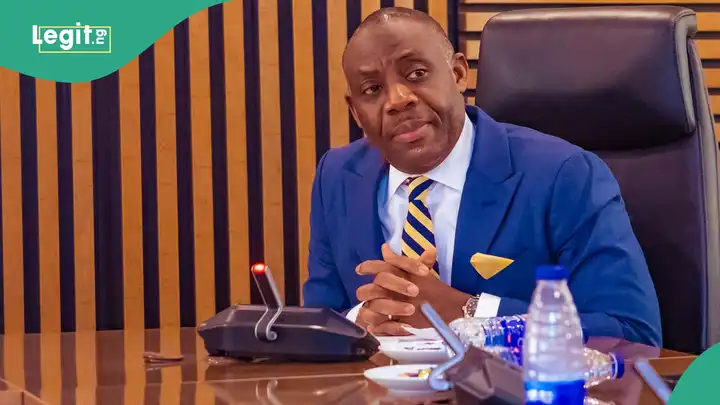
The Federal Ministry of Education has dismissed claims that it approved the “Living History” textbook, which reportedly excluded Igbo content Officials confirmed the book was never submitted to the National Educational Research and Development Council (NERDC) and is not on the list of approved instructional materials The Ministry urged schools and parents to disregard misinformation, stressing that only authorized textbooks reflect Nigeria’s cultural diversity and national values
The Federal Ministry of Education has denied approving the “Living History” textbook, which reportedly excluded Igbo content. As reported by Dailytrust, officials clarified that the book was not authorized for use in any Nigerian school.
In a statement issued by the Director of Press and Public Relations, Boriowo Folasade, the Ministry stressed that “Living History” had never been submitted to the National Educational Research and Development Council (NERDC).
The Council is the statutory body responsible for reviewing, evaluating, and approving instructional materials under the national curriculum.
As a result, the Ministry confirmed that the book was neither recommended by NERDC nor included on the official list of approved History textbooks.
The Ministry explained that consultations with NERDC leadership and a review of officially endorsed materials confirmed that “Living History” did not form part of the approved instructional resources for schools nationwide. Warning against misinformation Parents, teachers, school proprietors, and administrators were urged to disregard speculation, misinformation, and what the Ministry described as “emotionally charged narratives” surrounding the book. Officials warned that unapproved materials could undermine curriculum standards and negatively affect teaching and learning outcomes. “All approved textbooks strictly comply with the national curriculum and reflect Nigeria’s rich cultural diversity, shared history, and core national values, while promoting inclusivity, balance, and unity,” the statement noted.
Call for responsible discourse Folasade further appealed to the public to support responsible discourse, reject divisive misinformation, and verify the approval status of educational materials through official channels before adoption.
“The public is encouraged to consult NERDC for verified information on approved textbooks. Education thrives on truth. Unity thrives on understanding,” the statement added.
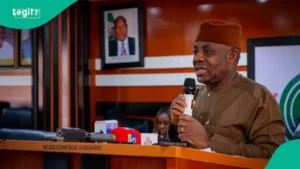
Ministry urges schools and parents to reject misinformation on unapproved textbooks. Photo credit: Tunji Alausa/x Source: Twitter
FG addresses claim it abandoned Nigerian students in Morocco Legit.ng earlier reported that the Federal Government has rejected reports suggesting that Nigerian students studying in Morocco under a bilateral scholarship scheme were abandoned or denied funding. Education authorities described the circulating claims as misleading and deliberately crafted to distort public understanding.
In a post on its official social handles, the Education ministry clarified that every beneficiary admitted into the Bilateral Education Scholarship programme before 2024 received payments up to the approved 2024 budget cycle. Any outstanding delays were linked to fiscal adjustments currently being resolved through engagements between the education and finance ministries. Education Minister Dr Maruf Tunji Alausa confirmed that no fresh bilateral scholarship awards were issued from October 2025 onward. Documents circulating online claiming otherwise were described as unauthenticated and designed to discredit government policy. According to the ministry, the decision to discontinue government-funded overseas bilateral scholarships followed a policy assessment which showed that Nigerian universities, polytechnics and colleges of education now possess the capacity to deliver similar academic programmes locally. Source: Legit.ng
Education
FG Opens Applications for 2026 PTDF-Funded Overseas Scholarship

The Federal Government has opened applications for the 2026 Petroleum Technology Development Fund (PTDF) Overseas Scholarship Scheme.
The announcement in a post on X (formerly Twitter) by the Office of the Special Adviser to the President on Social Media, Dada Olusegun, said the programme offers Nigerian postgraduate students the opportunity to study abroad.
According to the post, successful applicants will pursue studies in the United Kingdom, Germany, France and Malaysia under the fully funded scholarship scheme.
“FG has announced the commencement of applications for 2026 Petroleum Technology Development Fund (PTDF) Scholarships overseas,” the post stated.
Details published on the PTDF scholarship portal show that the scheme is open to MSc and PhD candidates in disciplines relevant to the oil and gas sector. Benefits include full tuition, return air tickets, accommodation, living allowances, health insurance and bench fees where applicable.
The agency said the initiative is designed to strengthen local expertise in the energy sector.
“The 2026 Overseas MSc and PhD Scholarships provide access to world-class training, research facilities, and global expertise, while developing indigenous capacity in Nigeria’s oil and gas sector,” PTDF said.
For MSc applicants, eligibility requirements include a minimum of a Second Class Lower (2.2) degree or higher, completion of the National Youth Service Corps (NYSC) programme, computer literacy, and at least five O’Level credits, including English Language and Mathematics.
PhD applicants are also required to submit a research proposal of no more than five pages detailing their objectives, methodology and data collection strategy.
PTDF explained that PhD candidates studying in the United Kingdom will follow a split-site arrangement, conducting research between the College of Petroleum and Energy Studies, Kaduna (CPESK), and selected partner universities, including Robert Gordon University, the University of Strathclyde and the University of Portsmouth.
The agency noted that the scholarship is highly competitive and selection will be strictly merit-based.
“Only candidates who demonstrate outstanding merit and suitability will be considered,” the statement said.
Applicants will be assessed based on academic performance, quality of research proposals, professional memberships and the relevance of their chosen fields to the oil and gas industry.
PTDF also warned that applicants must verify their National Identity Number (NIN) before applying, adding that multiple submissions or falsified documents would lead to automatic disqualification.
Interested candidates are to apply online via scholarship.ptdf.gov.ng for approved programmes at PTDF partner institutions.
The deadline for applications is February 27, 2026.
Education
Report all forms of sexual pressure from lecturers – Rector tells students
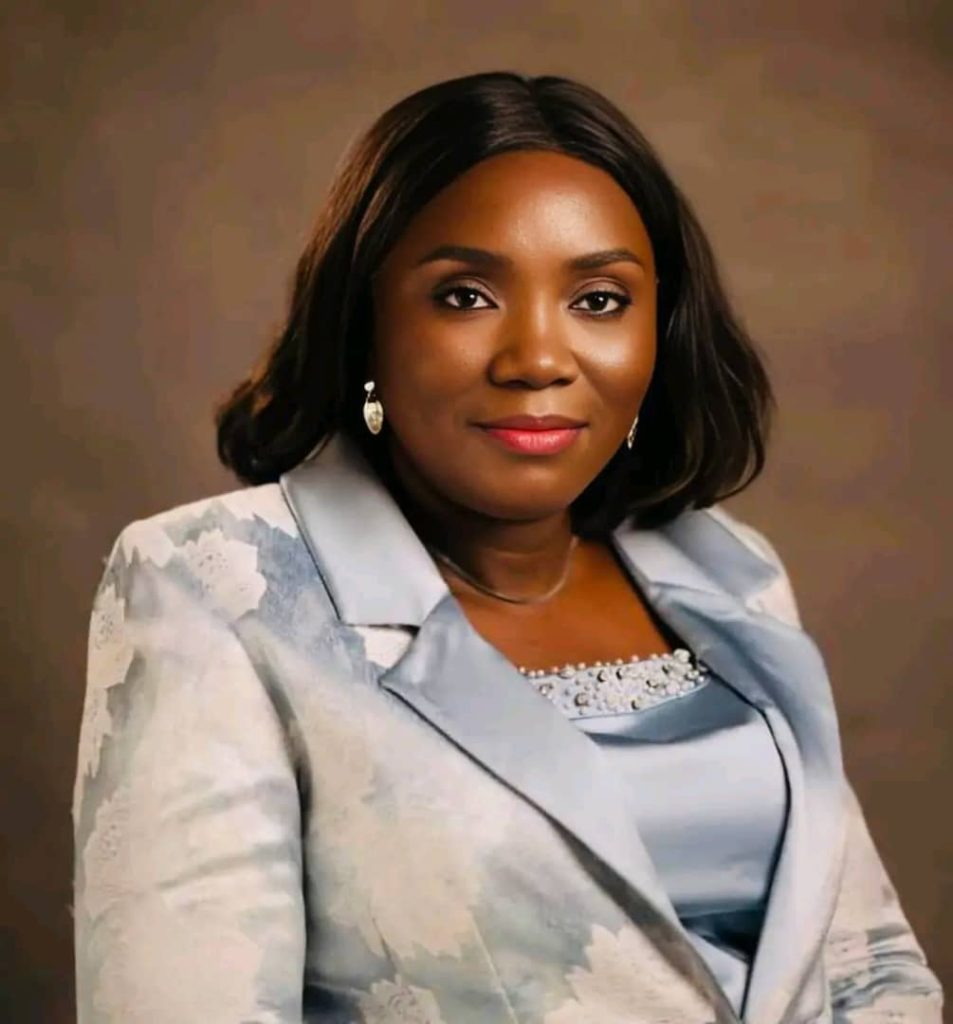
The Rector, Federal Polytechnic Ukana, Akwa Ibom State, Mrs Eduma Essien, has encouraged students of the institution to report any form of sexual pressure or harassment from lecturers to the management or the Anti-Sexual Harassment Unit of the Polytechnic for appropriate investigation and sanctions.
Essien also cautioned students against engaging in examination malpractices, cultism or any form of antisocial behaviors, adding that the school will not condone any of the vices.
She also charged them to be conversant with the polytechnic’s policies, rules and regulations.
Speaking during the 12th Orientation Exercise for newly admitted students on Tuesday, the rector also stated that the sale of handouts is prohibited in the polytechnic, saying students should only purchase approved textbooks.
Essien assured the students that as long as she remains at the helm of affairs, learning would be made easy in an environment that promotes discipline, safety and academic excellence.
She said, “I encourage you to report any form of sexual pressure from lecturers to the management or the Anti-Sexual Harassment Unit. This institution frowns at the exchange of gifts for marks.
“We also have zero tolerance for cultism and examination malpractice because we want to produce graduates who can confidently defend their certificates anywhere.”
The rector explained that students of the polytechnic would not only graduate with academic certificates but acquire practical skills through the institution’s mandatory skills acquisition program.
According to her, the world is increasingly focused on what individuals can offer to society.
Essien equally encouraged the students to cooperate with their lecturers by diligently carrying out their assignments to make teaching and learning effective and rewarding.
The orientation exercise also featured resource persons who delivered lectures on various aspects of the polytechnic system. They include the Registrar, Mr Idhigu Lucky, the Bursar, Sir Emmanuel Esomonu, the Polytechnic Librarian, Mr Ehikioya Uduebor, among others.
-
Business1 year ago
US court acquits Air Peace boss, slams Mayfield $4000 fine
-

 Trending1 year ago
Trending1 year agoNYA demands release of ‘abducted’ Imo chairman, preaches good governance
-

 Politics1 year ago
Politics1 year agoMexico’s new president causes concern just weeks before the US elections
-

 Politics1 year ago
Politics1 year agoPutin invites 20 world leaders
-

 Politics1 year ago
Politics1 year agoRussia bans imports of agro-products from Kazakhstan after refusal to join BRICS
-
Entertainment1 year ago
Bobrisky falls ill in police custody, rushed to hospital
-
Entertainment1 year ago
Bobrisky transferred from Immigration to FCID, spends night behind bars
-
Education1 year ago
GOVERNOR FUBARA APPOINTS COUNCIL MEMBERS FOR KEN SARO-WIWA POLYTECHNIC BORI









